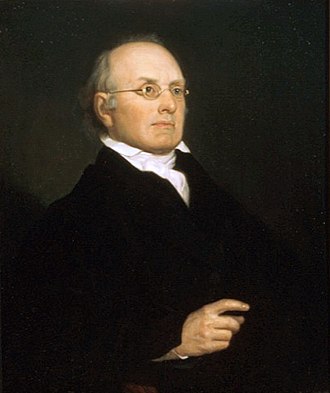Taxing and Spending Clause
An overview of the Taxing and Spending Clause in the United States Constitution

The Taxing and Spending Clause is a provision in the United States Constitution that grants the federal government the power to levy taxes and spend money for the general welfare of the United States. This clause is found in Article I, Section 8, Clause 1 and is a fundamental component of the federal government's fiscal authority.
Text of the Clause[edit]
The text of the Taxing and Spending Clause reads:
> "The Congress shall have Power To lay and collect Taxes, Duties, Imposts and Excises, to pay the Debts and provide for the common Defence and general Welfare of the United States; but all Duties, Imposts and Excises shall be uniform throughout the United States."
Interpretation and Scope[edit]
The interpretation of the Taxing and Spending Clause has been a subject of significant debate and judicial interpretation. The clause is often divided into two distinct powers: the power to tax and the power to spend.
Power to Tax[edit]
The power to tax is considered one of the most important powers of the federal government. It allows Congress to generate revenue to fund government operations and programs. The requirement that "all Duties, Imposts and Excises shall be uniform throughout the United States" ensures that taxes are applied consistently across all states.
Power to Spend[edit]
The power to spend is linked to the provision "to pay the Debts and provide for the common Defence and general Welfare of the United States." This has been interpreted to allow Congress to allocate funds for a wide range of purposes, as long as they serve the general welfare.
Judicial Interpretation[edit]

The scope of the Taxing and Spending Clause has been interpreted by the Supreme Court in several landmark cases. One of the earliest and most influential interpretations was provided by Joseph Story, a Supreme Court Justice and constitutional scholar.
Early Interpretations[edit]
In the early years of the Republic, the scope of the Taxing and Spending Clause was debated in the context of federalism and the balance of power between the federal and state governments. Joseph Story, in his "Commentaries on the Constitution," argued for a broad interpretation of the clause, suggesting that it provided Congress with significant discretion to determine what constituted the "general Welfare."
Modern Interpretations[edit]
In modern times, the Supreme Court has upheld a broad interpretation of the Taxing and Spending Clause. Notably, in the case of South Dakota v. Dole, the Court ruled that Congress could use its spending power to influence state policy, as long as the conditions attached to federal funds were related to the national interest.
Significance[edit]
The Taxing and Spending Clause is a cornerstone of federal fiscal policy. It enables the federal government to fund essential services, infrastructure, and social programs. The clause also plays a critical role in shaping the relationship between the federal government and the states, as federal funding often comes with conditions that influence state policies.
Related pages[edit]
Ad. Transform your life with W8MD's Budget GLP-1 injections from $75


W8MD offers a medical weight loss program to lose weight in Philadelphia. Our physician-supervised medical weight loss provides:
- Weight loss injections in NYC (generic and brand names):
- Zepbound / Mounjaro, Wegovy / Ozempic, Saxenda
- Most insurances accepted or discounted self-pay rates. We will obtain insurance prior authorizations if needed.
- Generic GLP1 weight loss injections from $75 for the starting dose.
- Also offer prescription weight loss medications including Phentermine, Qsymia, Diethylpropion, Contrave etc.
NYC weight loss doctor appointmentsNYC weight loss doctor appointments
Start your NYC weight loss journey today at our NYC medical weight loss and Philadelphia medical weight loss clinics.
- Call 718-946-5500 to lose weight in NYC or for medical weight loss in Philadelphia 215-676-2334.
- Tags:NYC medical weight loss, Philadelphia lose weight Zepbound NYC, Budget GLP1 weight loss injections, Wegovy Philadelphia, Wegovy NYC, Philadelphia medical weight loss, Brookly weight loss and Wegovy NYC
|
WikiMD's Wellness Encyclopedia |
| Let Food Be Thy Medicine Medicine Thy Food - Hippocrates |
Medical Disclaimer: WikiMD is not a substitute for professional medical advice. The information on WikiMD is provided as an information resource only, may be incorrect, outdated or misleading, and is not to be used or relied on for any diagnostic or treatment purposes. Please consult your health care provider before making any healthcare decisions or for guidance about a specific medical condition. WikiMD expressly disclaims responsibility, and shall have no liability, for any damages, loss, injury, or liability whatsoever suffered as a result of your reliance on the information contained in this site. By visiting this site you agree to the foregoing terms and conditions, which may from time to time be changed or supplemented by WikiMD. If you do not agree to the foregoing terms and conditions, you should not enter or use this site. See full disclaimer.
Credits:Most images are courtesy of Wikimedia commons, and templates, categories Wikipedia, licensed under CC BY SA or similar.
Translate this page: - East Asian
中文,
日本,
한국어,
South Asian
हिन्दी,
தமிழ்,
తెలుగు,
Urdu,
ಕನ್ನಡ,
Southeast Asian
Indonesian,
Vietnamese,
Thai,
မြန်မာဘာသာ,
বাংলা
European
español,
Deutsch,
français,
Greek,
português do Brasil,
polski,
română,
русский,
Nederlands,
norsk,
svenska,
suomi,
Italian
Middle Eastern & African
عربى,
Turkish,
Persian,
Hebrew,
Afrikaans,
isiZulu,
Kiswahili,
Other
Bulgarian,
Hungarian,
Czech,
Swedish,
മലയാളം,
मराठी,
ਪੰਜਾਬੀ,
ગુજરાતી,
Portuguese,
Ukrainian